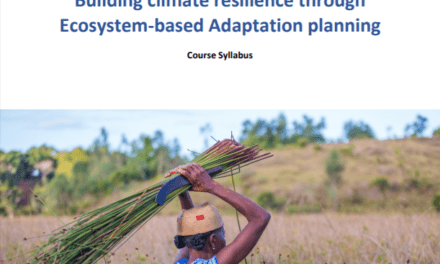Scholarship Opportunity! USDA National Scholars Program: Empowering Rural and Underserved Communities in Education

Are you a student from a rural or underserved community looking to pursue a career in agriculture, food, or natural resource sciences? The USDA 1890 National Scholars Program might be the opportunity you’ve been waiting for! The United States Department of Agriculture (USDA) is now accepting applications for the 2024 program until March 1, 2024.
What is the USDA 1890 National Scholars Program?
Established in 1992 as a collaboration between the USDA and the 1890 land-grant universities, the USDA 1890 National Scholars Program aims to enhance educational and career prospects for students hailing from rural or underserved areas across the nation. Managed by the USDA’s Office of Partnerships and Public Engagement (OPPE), this program seeks to increase the representation of students from these communities in fields related to agriculture, food, natural resources, and more.
Benefits of the Program
Selected scholars will receive comprehensive support, including full tuition coverage, fees, books, room and board expenses. Additionally, scholars will have the opportunity to pursue their degrees at one of the 1890 land-grant universities and gain valuable work experience at the USDA. This program plays a pivotal role in USDA’s Next Generation efforts, aimed at cultivating the future leaders in agricultural and related sciences.
Eligibility Criteria
To be eligible for the USDA 1890 National Scholars Program, applicants must meet the following criteria:
- Be a U.S. citizen
- Maintain a cumulative GPA of 3.0 or higher (on a 4.0 scale)
- Achieve a minimum score of 21 on the ACT or 1080 on the SAT
- Have been accepted for admission or currently attend one of the nineteen 1890 Historically Black Land-Grant Universities
- Demonstrate leadership qualities and involvement in community service
- Submit an official transcript, at least two letters of reference, and a completed application
Study Disciplines
Scholars are required to pursue degrees in one of the following disciplines:
- Agriculture
- Agricultural Business/Management
- Agricultural Economics
- Agricultural Engineering/Mechanics
- Agricultural Production and Technology
- Agronomy or Crop Science
- Animal Sciences
- Botany
- Food Sciences/Technology
- Forestry and Related Sciences
- Home Economics/Nutrition
- Horticulture
- Natural Resources Management
- Soil Conservation/Soil Science
- Farm and Range Management
- Other related disciplines (e.g., non-medical biological sciences, pre-veterinary medicine, computer science)
Application Process
Applications for the 2024 school year are open from December 15, 2023, through March 1, 2024. Interested candidates can find detailed instructions for creating a user account and submitting their applications on the USDA website. Don’t miss out on this opportunity to advance your education and career!
USDA is accepting applications for the 2024 USDA 1890 National Scholars Program from December 15 through March 1, 2024!
View updated instructions (PDF, 876 KB) for creating a user account and submit your application.
View Frequently Asked Questions (PDF, 152 KB) regarding technical issues sometimes encountered when filling out the application.
Stay Updated
For updates on future scholarship application openings and other higher education opportunities for minority students, sign up to receive notifications from the USDA 1890 National Scholars Program.
Contact Information
For any inquiries regarding the USDA 1890 National Scholars Program, please reach out to:
Office of Partnerships and Public Engagement
USDA 1890 Programs
1400 Independence Ave., S.W., Stop 0601
Washington, DC 20250
Telephone Number: (202) 720-6350
Email: 1890init@usda.gov or partnerships@usda.gov
Don’t let this opportunity pass you by – apply now and pave the way for a brighter future in agricultural and related sciences!





















